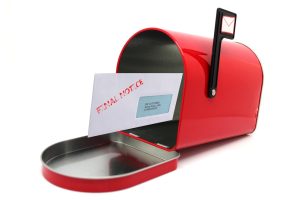As per my knowledge, there are no clear guidelines from the government for a debt collector who wants to work from home.
Here are suggestions that will help you maximize your compliance. You should discuss these points with the compliance superior of your collection agency. Since collection agencies fall under GLBA laws, they are subjected to the same strict laws as large financial institutions like banks.
- Do not use your personal laptop: Your collection agency should provide an official laptop containing only those software programs required to fulfill your collection responsibility. The debt collector should not have the ability to install new programs or use external devices like a USB drive that can be used to copy the data. That laptop should be encrypted and checked for security updates periodically. Access to data should only be permitted once the collector connects to the VPN network of the company, and no sensitive data should be stored locally. A multifactor authentication must be implemented and in case of 3 unsuccessful attempts, the laptop should be locked down or formatted automatically. The thought process is simple, in case the laptop is lost, there should be zero loss of personal data of clients or the debtors. Internet access should be restricted to selected websites only.
- A private work environment: The work-from-home environment should be conducive to professional conduct. This includes ensuring that there is no background noise or interruptions that could compromise the professionalism or privacy of calls. Other people should not hear your conversations since you might be discussing things involving people’s personal life and data. Avoid taking any printouts at your home concerning sensitive data.
- Accepting payments: You should transfer the call to your corporate office when the debtor is ready to pay,or have a PCI-compliant mechanism.
When debt collectors work from home, it is crucial to ensure that they comply with the various laws, regulations, and best practices that govern the debt collection industry. These laws and regulations may vary depending on the country or jurisdiction in which the debt collection agency operates. In the United States, for example, debt collectors must adhere to the Fair Debt Collection Practices Act (FDCPA). Below are some general compliance requirements and considerations for debt collectors working from home:
- Data Security and Privacy: Ensure that debt collectors have secure connections and use encrypted communications to protect sensitive consumer data. They should be educated about the importance of data security and privacy.
- Access Control: Implement strict access controls. Only allow access to consumer information on a need-to-know basis and ensure that access is secured through strong passwords or multi-factor authentication. All stored data must be encrypted.
- Call Recording and Monitoring: Since collection calls are recorded, the debt collector must inform the consumer at the beginning of the call. It’s also essential to monitor calls for quality assurance and compliance purposes. Your company should provide a central dialer system that is secure and follows collection guidelines.
- Training and Awareness: Provide comprehensive training to debt collectors on compliance requirements, including relevant laws and regulations like the FDCPA in the United States.
- Documentation and Record Keeping: Debt collectors should keep detailed records of all communications with consumers, including date, time, and content of communications.
- Clear Disclosures: Ensure that debt collectors clearly identify themselves, the company they represent and that the purpose of their call is to collect a debt.
- Adherence to Communication Guidelines: Debt collectors should not contact consumers at unreasonable times or places, and should honor any requests to cease communication.
- Avoid Harassment or Abuse: Collectors must avoid engaging in conduct that harasses, oppresses, or abuses any person in connection with the collection of a debt.
- Legal Collection Practices: Collectors must not use false, deceptive, or misleading representations in the course of collecting a debt.
- Work Environment: The work-from-home environment should be conducive to professional conduct. This includes ensuring that there is no background noise or interruptions that could compromise the professionalism or privacy of calls.
- Consumer Complaints: Have a system in place for handling consumer complaints, and ensure that collectors are trained on how to properly address and escalate complaints.
- Regular Auditing and Reporting: Implement regular audits and reporting to monitor the performance of debt collectors and ensure compliance.
- Technology Compliance: The technology used for remote work must be compliant with regulatory requirements. This includes secure file sharing, secure communications, and the secure handling of personal information.
- Local Laws and Regulations: Be aware of any local laws and regulations that may impact debt collection practices, especially if collectors are working from different jurisdictions.
- Emergency and Contingency Plans: Have plans in place for emergencies, such as data breaches or technology failures, that clearly outline the steps debt collectors should take in such situations.
It is important for debt collection agencies to stay current with the legal and regulatory environment, as laws and regulations can change. Additionally, it may be beneficial to consult with legal counsel or compliance experts to ensure that the agency’s work-from-home policies and procedures are in line with current requirements.
You should consult an attorney before following any advice mentioned in this article. Debt collection from home should be avoided as far as possible.
